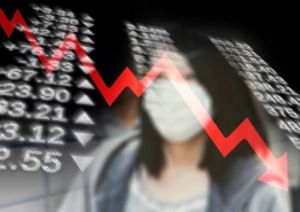News
Coronavirus Crisis impacting Danish economy less than feared
This article is more than 5 years old.
Denmark’s 6.8 percent GDP decline in the second quarter is historic, but better than predicted

Better than expected, but still a disaster (photo: Pixabay)
Revised figures from Danmarks Statistik have revealed that Denmark’s GDP fell by 6.8 percent in the second quarter of 2020, compared to the first, due to the Coronavirus Crisis.
And while it was the biggest quarterly GDP decline in 30 years, it’s actually better than expected – in mid-August, a 7.4 percent drop was predicted.
Despite the news, there isn’t much to celebrate, according to Anders Christian Overvad, an economist with Arbejdernes Landsbank.
“The numbers once again confirm how gigantic and historic the decline of Denmark’s economy was in the second quarter,” Overvad said according to Erhverv+.
READ ALSO: Report: Just 60 percent of jobs lost over coronavirus to return by end of 2021
Export woe ahead
Overvad underlined that even though Denmark performed better than many other countries – the US and Germany included – in the second quarter, there’s not much to celebrate.
“The historic recession we have witnessed abroad will usher in a difficult time for Danish exports,” he said.
The massive decline in 2020 comes on the heels of a 2019 that saw a Danish GDP increase of 2.8 percent – the highest since 2016.










































